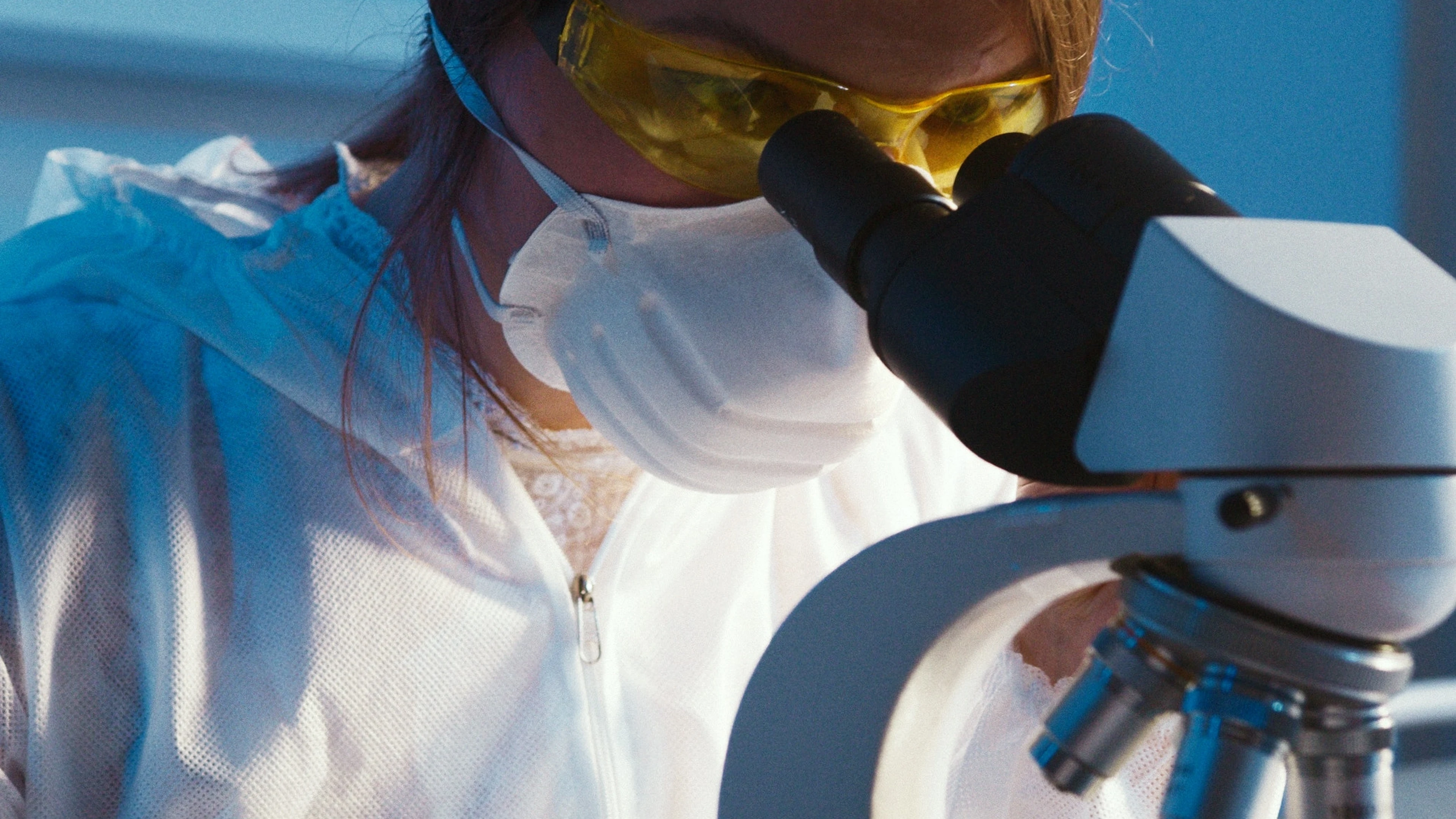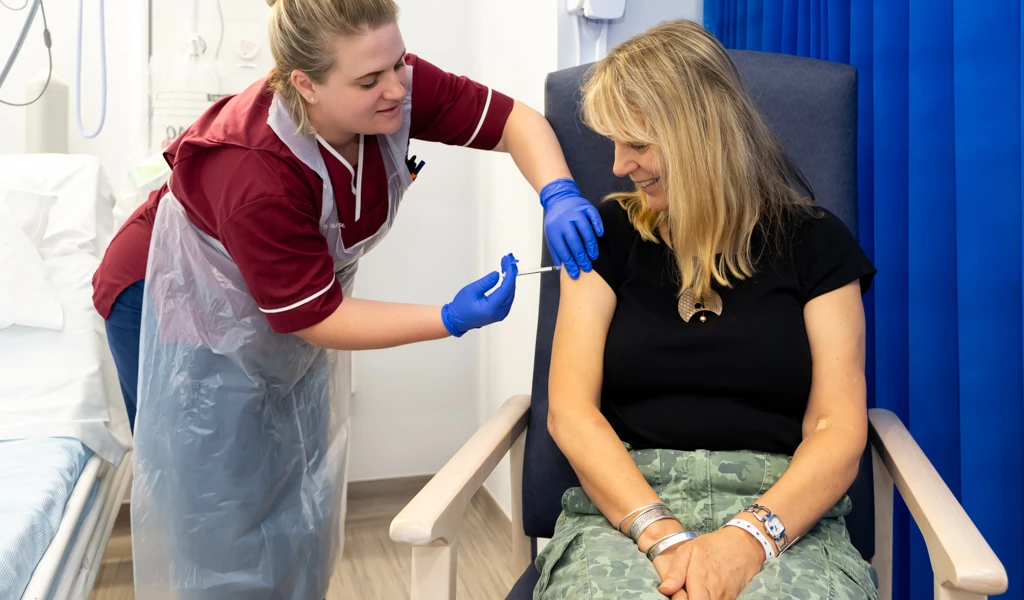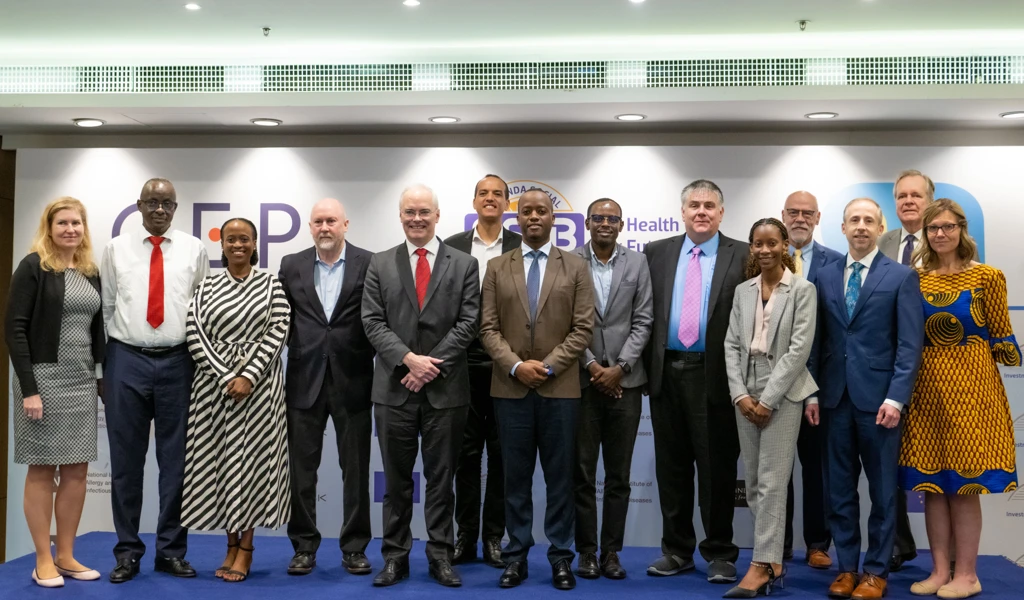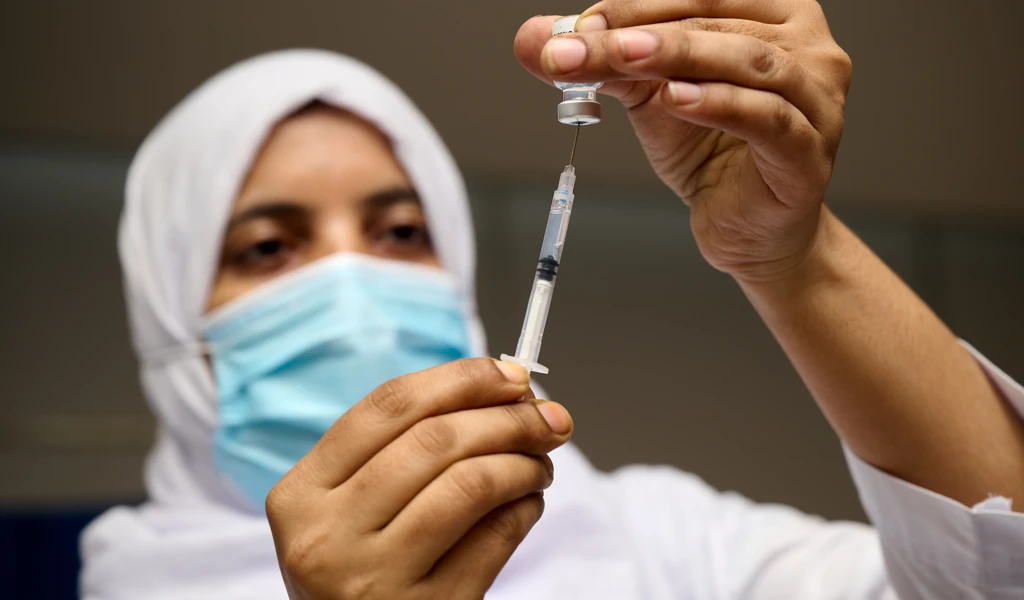CEPI and University of Oxford advance vaccine work against potentially deadly Arenaviruses

CEPI will provide up to $25 million to the University of Oxford to complete early development of prototype vaccines against the Junín virus, while also looking to improve manufacturing speed and scale-up of ChAdOx technology
Learnings could be leveraged to inform vaccine design for related viruses from the Arenavirus family, giving the world a head start in rapidly responding to future outbreaks in as little as 100 days
First project to be initiated under CEPI and University of Oxford's strategic partnership to accelerate global pandemic preparedness efforts
2 November 2023, Oslo, Norway and Oxford, UK — The Coalition for Epidemic Preparedness Innovations (CEPI) and the University of Oxford today announced the launch of a new project to initiate early development of prototype vaccines against the Junín virus, selected as an exemplar of the Arenavirus family which is responsible for multiple deadly haemorrhagic fevers with epidemic and pandemic potential. The data and materials generated by this project could give the world a head start in rapidly developing safe and effective vaccines against Arenaviruses within 100 days of their identification, potentially stopping a future pandemic in its tracks.
CEPI will provide up to $25 million to Oxford for preclinical and Phase I clinical development of a vaccine against the Junín virus using Oxford's ChAdOx platform — the basis for Oxford's COVID-19 vaccine, which saved 6.3 million lives in the first year of the global vaccine rollout — and other rapid response platforms. Endemic to the Pampas of South America, a large region of over a million square kilometers which includes Buenos Aires, Junín virus can cause Argentine Haemmorhagic Fever, with symptoms including muscular pain, dizziness, rashes, and a 15-30% case fatality.
Junín virus: an exemplar Arenavirus
The Oxford team was able to develop a COVID-19 vaccine with unprecedented speed, in part because of their prior work to develop a vaccine against MERS which is a closely related virus from the coronavirus family. This gave the team a significant head start when COVID-19 emerged because they had solved many of the critical vaccinology problems for coronaviruses in advance.
CEPI and Oxford now aim to replicate this approach for the Arenavirus family by generating crucial knowledge about vaccine design and biological mechanisms linked to protection against the Junín virus which could significantly accelerate vaccine development against other viruses within the Arenavirus family. The viral family comprises New World Arenaviruses, a distinctive group within the Arenavirus family that includes viruses like Junín, as well as Old World Arenaviruses like Lassa fever, one of CEPI's priority pathogens which are listed on the WHO R&D Blueprint as needing urgent R&D action.
COVID-19 was a wake-up call to the world, highlighting the critical need to be better prepared for future viral threats.
This new project will harness the University of Oxford's extensive vaccinology experience and its innovative ChAdOx vaccine technology – one of only a handful of vaccine platforms proven to work at speed, scale, and low cost – to expand the world's scientific knowledge on Arenavirus vaccines. The project will generate vital resources for the proposed Global Vaccine Library helping accelerate efforts to reduce vaccine development timelines to 100 days when faced with future threats.
In this new project, scientists here in Oxford and in Latin America will develop and test candidate vaccines for Junín virus using both viral vector and mRNA technology.
Our work will not only inform best-in-class vaccines against the Junín virus, but it will also support vaccine development for the broader group of Arenaviruses. It is this wider impact that could crucially help the world develop and manufacture safe, affordable vaccines at speed, preparing us for future pandemic threats.
The prototype vaccines, data, and knowledge about Arenaviruses that are generated through this research could make a vital contribution to the proposed Global Vaccine Library: a global repository of vaccine resources, capabilities, and data which can be pulled ‘off the shelf' and quickly adapted in response to a future outbreak, accelerating the development of life-saving vaccines.
As part of the project, the University of Oxford's team of scientists (Professors Teresa Lambe, Sandy Douglas, Thomas Brown, and Sue Ann Costa Clemens) will also explore improving vaccine manufacturing processes to accelerate the speed and increase the scale of production of vaccines on their ChAdOx platform. The aim is to provide ‘proof-of-concept' that the technology could dramatically accelerate vaccine development timelines from sequence to manufacturing of clinical trial materials, in alignment with the timeframes set out to achieve the 100 Days Mission for fast vaccine rollout during an outbreak.
Enabling equitable access
CEPI and the University of Oxford are committed to enabling equitable access to the outputs of this partnership in line with CEPI's Equitable Access Policy so that vaccines are first available, at affordable prices, to populations when and where they are needed to end an outbreak or curtail an epidemic or pandemic, regardless of ability to pay. CEPI and the University of Oxford will also assess potential technology transfer to manufacturers in the Global South should the vaccine be successful in clinical trials.
Clinical trial data and results generated as part of this project will be published for open access for the benefit of the global scientific community.
This is the first project to be initiated under a strategic partnership between CEPI and the University of Oxford announced in August 2023. Through the partnership, CEPI will provide a total of up to US$80 million to support multiple projects in the design, manufacture, and vaccination strategies for globally accessible vaccines against known and unknown outbreak pathogens (Disease X) in pursuit of the 100 Days Mission. Embraced by the G7 and G20, the global goal aims to accelerate vaccine development timelines to a third of the time taken to develop COVID-19 vaccines. Additional projects which fall under the remit of the strategic partnership will be announced in the coming months.
ENDS
About Junín virus and Arenaviruses
Belonging to the Arenavirus family, Junín virus causes Argentine haemorrhagic fever, a potentially deadly disease endemic to the Pampas region of Argentina, with approximately five million people at risk. Arenaviruses are spread by rodents which serve as the virus' natural reservoir. Endemic regions have expanded significantly in recent decades, partly due to encroachment into rodent habitats.
Arenaviruses are divided into two groups — New World and Old World viruses — based on genetic differences as well as geographical distribution. New World viruses are found in the South Western Hemisphere. They include, among others, Junín virus (Argentina), Chapare virus (Bolivia), and Guanarito virus (Venezuela). Old World viruses occur in the South Eastern Hemisphere and include Lassa fever (West Africa) and Lujo (Southern Africa). There are some arenaviruses — both New and Old World — that have been identified in host animals, but no human infection has been reported yet.
CEPI and the University of Oxford
In September 2023, CEPI and the University of Oxford entered into a strategic partnership to accelerate the development of safe, effective and globally accessible vaccines against ‘Disease X' and pave the way for the development of new vaccines, based on Oxford's ChAdOx technology and other rapid response vaccine platforms, within just 100 days of a virus with pandemic potential emerging.
The strategic partnership builds upon existing collaborations between CEPI and Oxford.
CEPI has previously partnered with the University of Oxford to develop vaccines against CEPI priority pathogens Lassa, MERS and Nipah virus, while also providing support to facilitate the development, manufacturing, and clinical testing of Oxford's COVID-19 vaccine.
About CEPI
CEPI is an innovative partnership between public, private, philanthropic, and civil organisations, launched at Davos in 2017. Its mission is to accelerate the development of vaccines and other biologic countermeasures against epidemic and pandemic threats so they can be accessible to all people in need.
CEPI has supported the development of over 30 vaccine candidates against its priority pathogens—Chikungunya virus, Ebola Virus Disease, Lassa virus, Middle East Respiratory Syndrome coronavirus, Nipah virus, Rift Valley Fever virus and SARS-CoV-2—and is a leading funder of research into broadly protective coronavirus vaccines, which could protect against future variants of COVID-19 as well as other coronaviruses with epidemic and pandemic potential. The organization has also invested in the development of rapid response platforms to develop vaccines against Disease X (the threat of an unknown virus).
CEPI has overseen a number of scientific breakthroughs, including the first Phase 3 trial of a Chikungunya vaccine and the advancement of the first ever Nipah and Lassa vaccines into Phase 1 trials. The organization played a central role in the global response to COVID-19, supporting the development of one of the world's largest portfolios of vaccines against SARS-CoV-2, seven of which have been approved for domestic or global use. It also co-led COVAX, the global initiative to deliver fair and equitable access to COVID-19 vaccines, which has delivered approximately 2 billion doses of vaccine to 146 countries around the world.
CEPI's five-year plan for 2022-2026 aims to dramatically reduce or even eliminate the future risk of pandemics and epidemics. Central to the plan is CEPI's goal to compress the time taken to develop safe, effective, globally accessible vaccines against new threats to just 100 days. Achieving this ‘100 Days Mission', which has been embraced by the G7 and G20, would give the world a fighting chance of containing a future outbreak before it can spread to become a global pandemic.
Visit our news page for the latest updates. Follow us via @CEPIvaccines, @DrRHatchett, LinkedIn, and Facebook.
About University of Oxford
Oxford University has been placed number 1 in the Times Higher Education World University Rankings for the seventh year running, and number 2 in the QS World Rankings 2022. At the heart of this success are the twin-pillars of our ground-breaking research and innovation and our distinctive educational offer.
Oxford is world-famous for research and teaching excellence and home to some of the most talented people from across the globe. Our work helps the lives of millions, solving real-world problems through a huge network of partnerships and collaborations. The breadth and interdisciplinary nature of our research alongside our personalised approach to teaching sparks imaginative and inventive insights and solutions.
Through its research commercialisation arm, Oxford University Innovation, Oxford is the highest university patent filer in the UK and is ranked first in the UK for university spinouts, having created more than 200 new companies since 1988. Over a third of these companies have been created in the past three years. The university is a catalyst for prosperity in Oxfordshire and the United Kingdom, contributing £15.7 billion to the UK economy in 2018/19, and supports more than 28,000 full time jobs.
Media Contacts
CEPI
[email protected]
+44 7387 055214
University of Oxford
Dr. Adriaan Louis Taljaard
Manager Strategic Communications (Vaccines)
[email protected]
University of Oxford
Website: www.ox.ac.uk Twitter: @UniofOxford
#OxfordVaccine
@OxfordVacGroup


